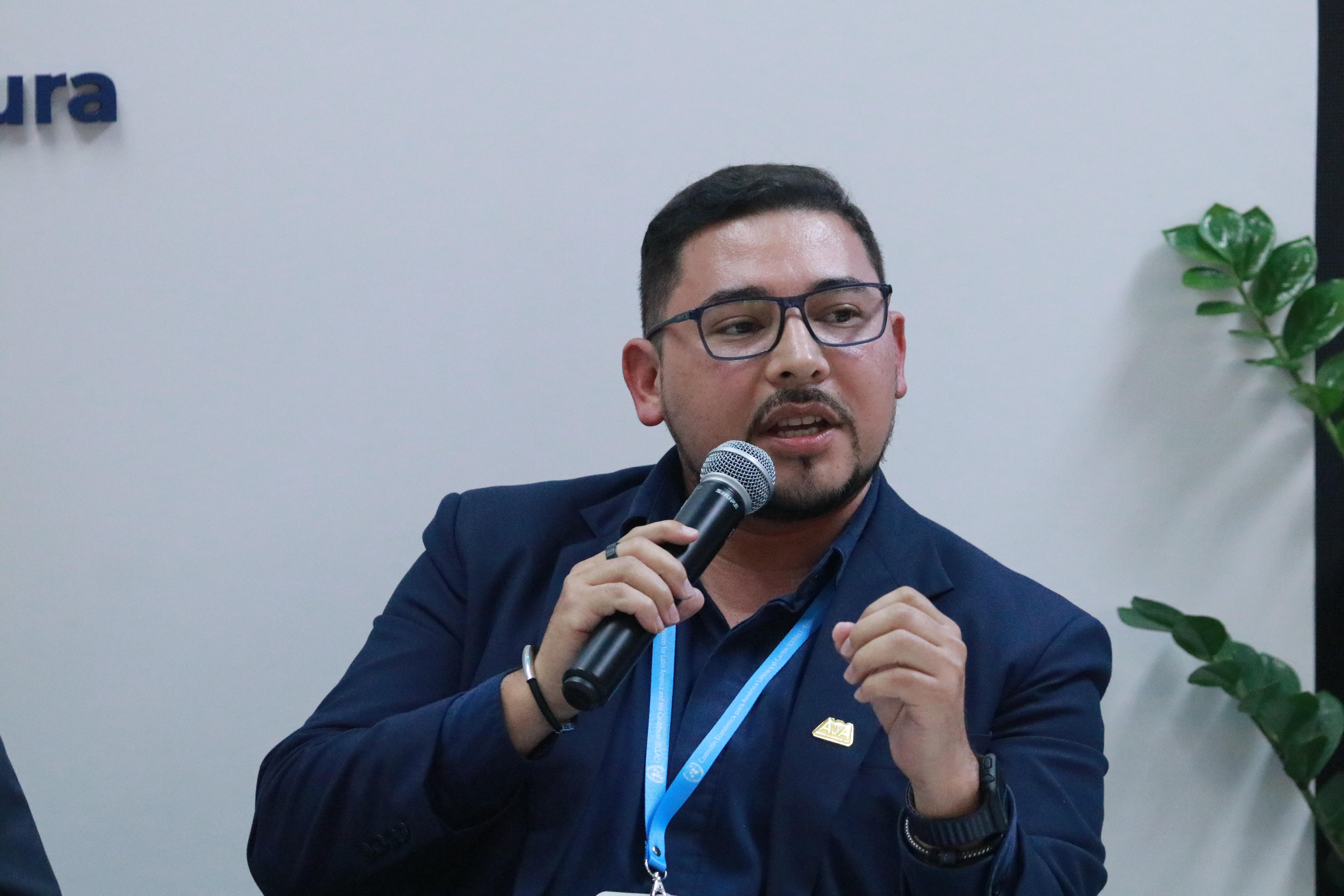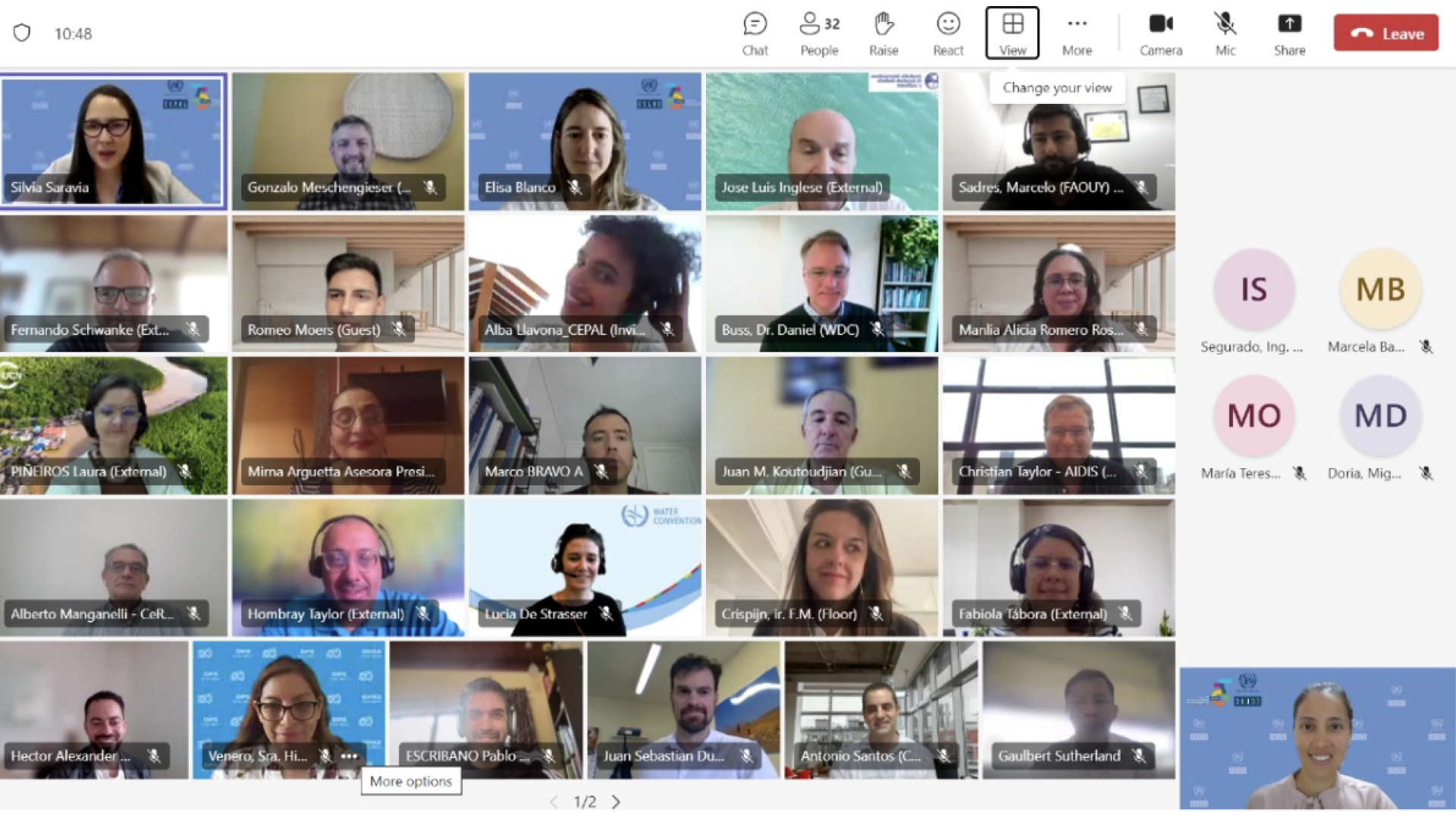Briefing note
During the Regional Dialogues 2024 held in San José, Costa Rica, from March 11th to 13th, a special session focused on local water Circular Economy projects, titled "Opportunities for Circular Economy in the Sanitation Sector – Towards a Roadmap for LAC". This session was funded by the United Nations Peace and Development Fund (UNPDF), the German Cooperation, and the ROSA project. Its aim was to present a roadmap for transforming public policies and regulatory frameworks to broaden investment opportunities in circular systems across different scales and with a multi-actor approach.
At this panel, Jorge Castaneda, President of the Salvadoran Water Authority (ASA), formally announced the municipal commitment to adopt the investment plan co-designed by ASA, Metapán, and ECLAC for the municipality's wastewater treatment plant. Additionally, plans were unveiled to collaborate with financial actors to implement circular economy strategies in the plant.
El Salvador, alongside Panama and Mexico, is part of the Circular Economy project implemented by ECLAC, aimed at bolstering national capacities in circular economy principles in the water sector. This includes initiatives such as nutrient recovery and methane capture in wastewater treatment systems. As part of this project, a training workshop was conducted in San Salvador in September 2023 for pre-selected wastewater treatment plants, aiming to explore opportunities for their transformation into circular systems. The workshop also focused on enhancing their capacity in methodologies for methane estimation and utilization, as well as financial evaluation.
Preliminary results from the workshop for the WWTP of Metapán were encouraging, estimating methane recovery at 278,148 m3/year. It was projected that an investment of USD 395,464 would be necessary to transition the wastewater treatment plant into a circular system, with anticipated annual savings of USD 145,228. The cost-benefit ratio over a 20-year time horizon was estimated at 3.13, indicating an attractive expected return on investment. Moreover, the expected payback time was calculated at just 3.4 years, with an internal rate of return (IRR) of 35%. These results suggest promising prospects for investing in the WWTP of Metapán due to the short payback time and high expected return on investment.
Castaneda emphasized that initial discussions have been held with FIDEAGUA, a local NGO financing mechanism in El Salvador, expressing interest in exploring investment opportunities in this specific wastewater treatment plant. He also noted the Salvadoran Water Authority's willingness to provide financial and technical support for the initiative. The importance of the training provided by ECLAC at the local level and the collaborative spaces created among various partners were underscored. Castaneda highlighted that the next steps involve enhanced feasibility analysis and sustainability considerations to ensure that the investment plans are as realistic and accurate as possible. It was agreed that ECLAC will continue to support the entire process from a technical, regulatory, and financial perspective
Enter here to view the recording.



